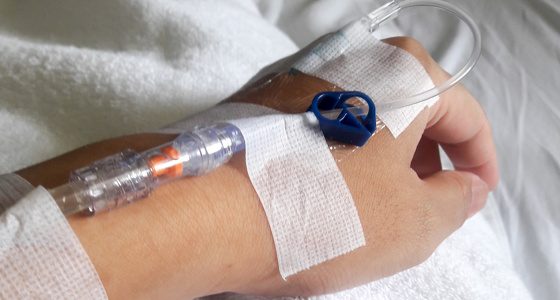Tofacitinib (Xeljanz) is a possible treatment option for adults with moderately or severely active ulcerative colitis who have not responded adequately to, or have stopped responding to, or who cannot tolerate conventional or biological therapy. Find out more about it...
Xeljanz is the brand name for tofacitinib. It’s a type of biologic drug called a JAK (Janus-associated tyrosine kinase) inhibitor used in the treatment of adults with moderately or severely active ulcerative colitis.
*including steroids, immunosuppressants (such as azathioprine, mercaptopurine, methotrexate) or biological drugs (infliximab, adalimumab, golimumab, vedolizumab).
Before starting tofacitinib you should tell your doctor if you believe you may currently have any infections. Tofacitinib can reduce your body’s ability to fight infections. It may make an existing infection worse or increase the chance of you getting a new infection. Use of tofacitinib in patients older than 65 years is not recommended, unless no suitable alternative is available, as tofacitinib has been found to increase the risk of serious infections1.
Signs of infection may include; fever, sweating, chills, muscle aches, cough, shortness of breath, new phlegm or change in phlegm, weight loss, warm or red or painful skin or sores on your body, difficulty or pain when swallowing, diarrhoea or stomach pain, burning when you urinate or urinating more often than normal, feeling very tired.
Other considerations are;
If you have ever had tuberculosis (TB), or have come into contact with somebody with TB. You may need tests to check for tuberculosis before and during treatment with tofacitinib
If you have had blood clots in the veins of your legs (deep vein thrombosis) or lungs (pulmonary embolism) in the past. Tofacitinib may increase the risk of blood clots2
If you have ever had hepatitis. You may need regular checks for this as tofacitinib may increase the risk of you getting hepatitis again
If you have cancer or if you have previously had cancer. You may have a slightly increased risk of developing some types of cancer including lymphoma and some types of skin cancer. Your doctor will have to make a decision to prescribe tofacitinib or not
If you have heart problems such as congestive heart failure or ischemic heart disease, tofacitinib may make your symptoms worse
If you have any condition that increases your chance of infection (e.g diabetes, HIV/AIDS, or a weak immune system)
If you have a history of fainting, tofacitinib may make this worse
If you are pregnant. Tofacitinib can’t be taken in pregnancy because of the risk of damage to the developing baby
If you recently had a vaccine, or are due to have one. You should wait a certain amount of time before starting tofacitinib, which your doctor can advise you about
You should also tell your doctor if you take any other medications, over-the-counter medicines or vitamins or supplements.

Some people may find they begin to feel better as little as three days after starting treatment, but you should hopefully feel an improvement in your symptoms within eight weeks if tofacitinib is working for you.
However, if taking tofacitinib hasn’t improved your symptoms after taking it for 16 weeks, you will need to stop taking it as it’s not the right treatment for you.
The most common reported side effects of tofacitinib are3:
Uncommon side effects are:
Possible serious side effects:
It’s really important you tell your doctor as there may be other drug interactions not mentioned here.
Prior to starting tofacitinib you should expect to be screened for various things. Blood tests to check your kidney function and blood count, and screening for tuberculosis may be carried out.
You should also be offered blood tests after taking tofacitinib for eight weeks and then every three months during treatment. This is to monitor your red and white blood cells as tofacitinib can cause a reduction in these. Tofacitinib can increase cholesterol levels for some people, so your cholesterol levels and liver function should be monitored too.
Xeljanz is licensed by Pfizer and is available on the NHS in the UK. It is approved by the Food and Drug Administration (FDA) in the US.

